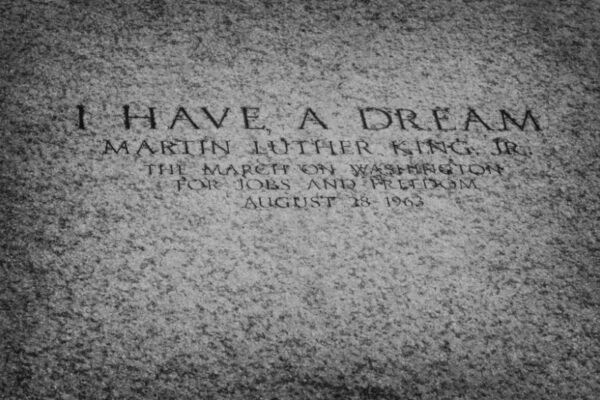As we celebrate Martin Luther King Jr.’s birthday, I wonder what MLK would think about the country for which he dedicated his life to fighting racial oppression and advancing civil rights. Would he be pleased with the state of affairs of our country? What does the presidential election say about who we are as a nation?
It is symbolic that about a week after we celebrate MLK Day will mark the conclusion of the presidency of the first black president of the United States. In his “I Have a Dream” speech, MLK pointed out that in spite of how far America had come, there was still racial injustice.
In what is arguably the most famous line from his speech, he stated that he had a dream that his four little children will one day live in a nation where they will not be judged by the color of their skin but the content of their character. And character is, or should be, one of the most important virtues we look for in our leaders.
President Barack Obama was not a perfect president. No president ever is. He made his share of mistakes, for which he paid multiple political prices. However, it is patently unfair and just plain wrong to characterize his entire presidency as a failure with black Americans.
Beyond policies, President Obama does not get enough credit for the type of man he is — his character. He has been a remarkable role model for African Americans, for both males and females.
Here was a man who was a proud father of two beautiful black daughters and married to a smart and beautiful black woman, whose accomplishments he was proud to talk about. He declared himself a feminist and was a staunch supporter of policies that supported women, including equal pay for equal work and women’s reproductive rights.
Whether you agreed or disagreed with his policies, by any objective criteria Obama has demonstrated himself to be a man of strong character. During the stress that comes with being president, as well as the added racism he endured, he always conducted himself with class and dignity. By all accounts his character was unassailable. In this regard he was a president we all could be proud of.
If he were alive today, MLK would be taken aback by what has just transpired in this country. We have elected a president whose former attorney wrote that he should not be elected because of his character.
We have elected a president who was sued for housing discrimination, who allegedly called his son a “retard,” used the N-word, and referred to women in unsavory ways. We have elected a man who, along with his companies, has been accused of mistreating women in at least 20 lawsuits.
We have elected a man who has said that he didn’t take care of his kids and that men who change diapers are acting like the wife. Most disturbingly, we have elected a man who essentially promoted sexual assault.
Imagine the outcry that would have erupted had Sen. Barack Obama been accused of the things that have been documented about Donald Trump. Would there have ever been a President Obama?
It is ironic that the celebration of MLK’s birthday comes days before the inauguration of a new president who, in many ways, is the antithesis of all that King fought for. Not only are we witnessing a transition of power, but we are also witnessing a transition of dignity, high character and morality that defined the past eight years. Values that were once embraced but which were ceded to political expediency during this election.
But the reality is that like it or not, Trump is our next president. For our country’s sake, let’s hope that Trump’s past behavior is not, as psychologists say, a predictor of his future behavior. We need a president with strong character and a moral compass. MLK would have wanted that. Only time will tell.
Kevin Cokley is a professor of educational psychology and black studies, and director of the Institute for Urban Policy Research and Analysis at The University of Texas at Austin.
A version of this op-ed appeared in the Dallas Morning News, Carroll County Times, Austin American Statesman and Psychology Today.
To view more op-eds from Texas Perspectives, click here.
Like us on Facebook.




